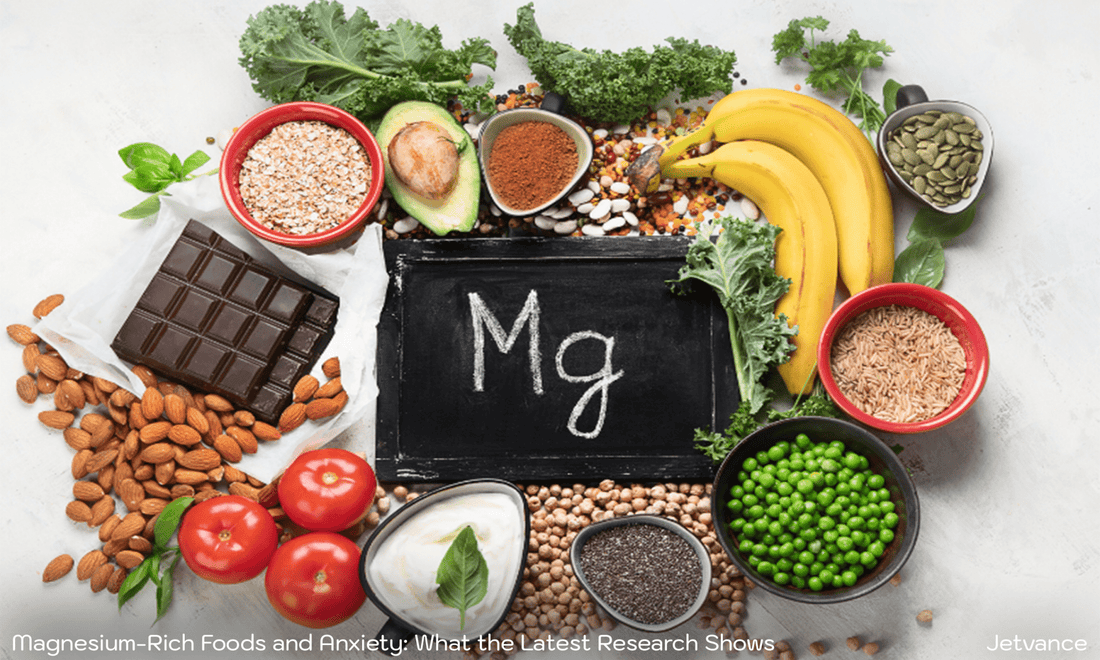
Magnesium-Rich Foods and Anxiety: What the Latest Research Shows
Share
While often overshadowed by trendier supplements, magnesium is gaining renewed scientific attention for its role in reducing anxiety symptoms. A 2024 meta-analysis published in Nutrients reviewed 24 clinical trials and found that increased magnesium intake—through food or supplementation—led to statistically significant improvements in mild to moderate anxiety, especially among women and people under chronic stress.
Magnesium supports nervous system regulation by interacting with GABA receptors, which promote relaxation and reduce overstimulation in the brain. It also plays a critical role in cortisol regulation, sleep quality, and muscle recovery—making it a vital micronutrient for overall wellbeing.
Food first is best. Top sources include:
- Pumpkin seeds (150 mg per 30 g)
- Dark chocolate (up to 65 mg per square)
- Spinach, black beans, almonds, and avocados
The recommended daily intake is around 310–420 mg, depending on age and gender. While supplementation may help in deficiency cases, a magnesium-rich diet provides fiber, healthy fats, and antioxidants, too.
For anyone experiencing stress, poor sleep, or muscle tension, increasing magnesium intake through whole foods could offer natural relief—with evidence-backed benefits for both body and mind.

